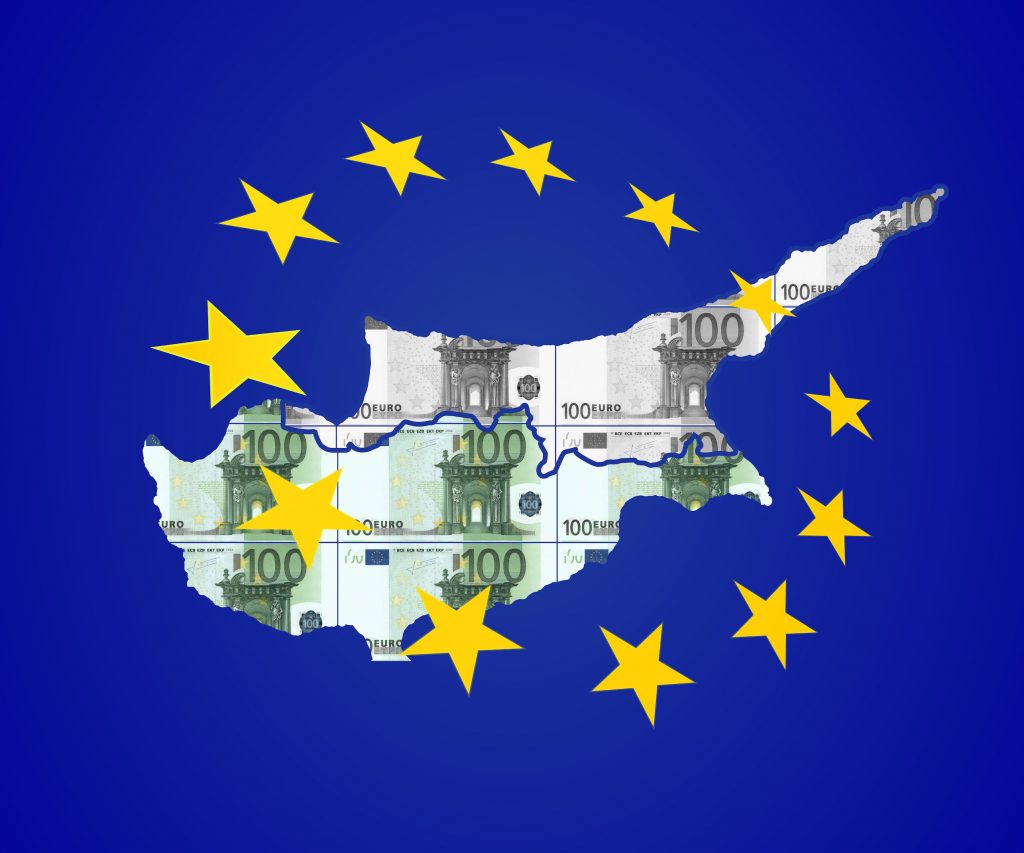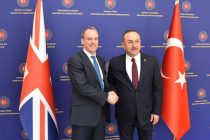In the third and final part of a series of stories marking the 15th anniversary of the Annan Plan referendums in Cyprus, Eltan Halil examines the role of the European Union and the consequences of its decision to admit a divided island.
The European Union has made the prospects of a solution in Cyprus more difficult by admitting the Greek Cypriot side as a member without a solution to the island’s division.
That was the verdict of prominent Turkish Cypriot figures as they criticised the EU over its fateful decision to accept the Greek Cypriot side into the bloc on 1 May, 2004, despite the fact that they had overwhelmingly rejected a unification deal just a week earlier, which Turkish Cypriots had accepted.
“Unfortunately, the EU ignored all the warnings,” said Professor Ahmet Sözen of Eastern Mediterranean University, who co-wrote an article in 2002 that said such a move by the EU would be a “curse”.
“During those years, the EU was busy trying to expand and include ten new member states… Greece had already threatened the EU with veto of this expansion if Cyprus was not admitted into the Union.
Admitting a divided island into the EU was a “mistake that erased any motivation the Greek Cypriot leadership had to solve the Cyprus issue”
“As one EU diplomat put it to me: ‘Greece blackmailed the other member states and took 14 member states as hostage’.”
Admitting a divided island into the EU was a “mistake that erased any motivation that the Greek Cypriot leadership had to solve the Cyprus issue on a federal model based on power sharing between the Greek Cypriot and Turkish Cypriot communities”, Prof Sözen said.
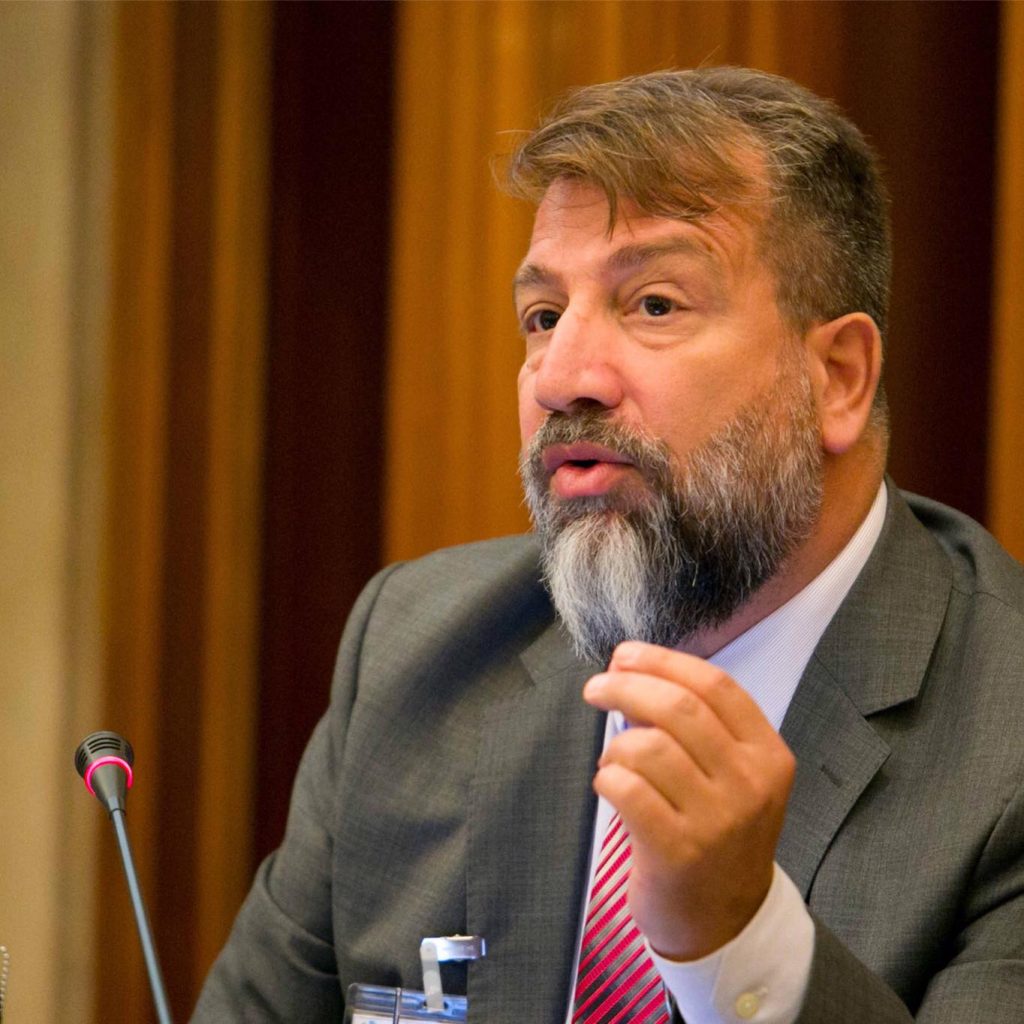
“Unfortunately, once the Greek Cypriot-dominated Republic of Cyprus became an EU member, it blocked the previous decisions of the EU Commission to establish a direct trade arrangement with northern Cyprus in order to bring the Turkish Cypriot community closer to the Union,” he continued.
“Hence, the EU has been following a very narrow legalistic approach regarding northern Cyprus where it only engages with the civil society and refuses to engage with the Turkish Cypriot authorities – in a way, making the division in the island more concrete.”
The EU is also “losing the trust and the confidence” of the Turkish Cypriots by “not sticking to its earlier pledges to lift the isolations of the Turkish Cypriot community”, he added.
“In that regard, the EU has already lost its potential to be a neutral actor in the Cyprus issue and became an irrelevant peace broker.”
Turkish Republic of Northern Cyprus (TRNC) Deputy Prime Minister and Foreign Minister Kudret Özersay said that the EU had made a “serious mistake” by allowing the Greek Cypriot side into its ranks without a Cyprus solution and that it could have postponed the accession date – just as it has agreed to delay Brexit.
Cyprus one of 10 new nations that joined the EU on 1 May 2004
“It was definitely a mistake, not only described by us as a mistake, but it was described by themselves as a mistake,” he said.
“It was a mistake because in any other accession process, the European Union followed a conditionality approach for all other candidate countries, except the Greek Cypriot-administered Cyprus.”
Minister Özersay said this happened despite the fact that the Greek Cypriots had a “territorial dispute”, the “absence of representative government” and the “absence of a comprehensive settlement” on the island.
“Although in the EU documents it was said that all relevant factors shall be taken into consideration in taking such a decision, they [did not] take into consideration the fact that the Greek Cypriot side did not support a comprehensive settlement. So they were awarded, while the Turkish Cypriots were punished.
“It was a serious mistake, I think, not only with respect to the Annan Plan… but also the period afterwards was negatively affected by that type of accession to the European Union, because the EU direct trade regulation, EU financial aid regulation, any potential opening that could have been made by the European Union, was prevented by the Greek Cypriot side because of the way they acceded to the European Union.”
Prof Özersay said he was “not quite sure about the sincerity” of subsequent efforts by the EU to help ease the Turkish Cypriots’ isolation.
“They made a mistake, either deliberately or not, and then they rely on the consequences of that mistake as an excuse not to keep their commitments”
“Some of the countries did take certain steps, or attempts to realise it sincerely, but at the end of the day, for those who were not, you know, acting in good faith, it was quite a good excuse to say ‘Well, we did want to… help remove the isolations, but, you know, the Greek Cypriots have a veto right’,” he said.
“So, they rely on their own mistake. They made a mistake, either deliberately or not, and then they rely on the consequences of that mistake as an excuse not to keep their commitments.”
Prof Özersay said the EU’s aid programme for the Turkish Cypriots was “very limited” and that what was more important was for Turkish Cypriots to be able to export directly to the EU.
He accused the EU of acting as if there was “no public authority” in North Cyprus because all references to public bodies were removed from the financial aid regulation.
“The main problem is the psychological barrier on the Greek Cypriot side”
Prof Özersay said that 15 years since the Annan Plan referendums Turkish Cypriots still encounter difficulties trying to advertise and sell their wares in South Cyprus.
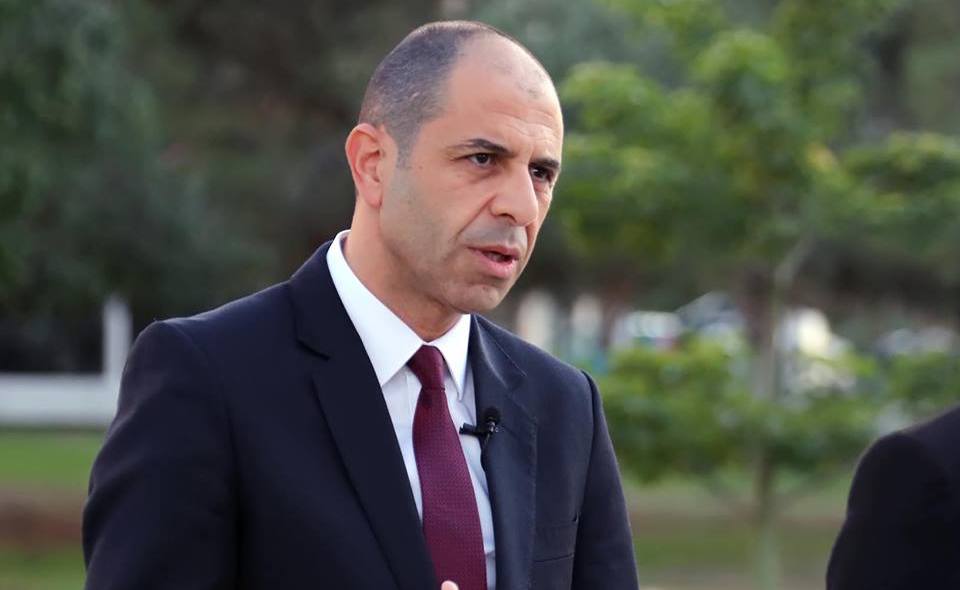
“The main problem is the psychological barrier on the Greek Cypriot side,” he said. “You cannot advertise in the Greek Cypriot press, for example. There is no legal barrier, maybe, but there is a psychological barrier.
“Even if you can advertise, and even if you manage to keep your product on the shelves of the Greek Cypriot shops, there is another barrier: generally, they don’t buy it.”
Asked if he felt the EU was attempting to “assimilate” the Turkish Cypriots into the Greek Cypriot-run Republic of Cyprus, Prof Özersay replied: “This is the easiest way for the European Union… and that option is the most comfortable option for the European Union as well.
“And I’m not quite sure whether they really understand our sensitivities, particularly because we don’t have any capacity to be represented there and our voice is not heard within the EU institutions.”
Mehmet Ali Talat, who was the TRNC’s Prime Minister from December 2003 until April 2005, when he became President, said that while direct trade was “still on the EU’s agenda” the matter remained “dormant”.
He said that aid for Turkish Cypriots had been a “good thing” because it kept relations with the EU going, but warned that there was now “Cypriot fatigue” between both parties.
“The European Union has to do it [provide aid], because they also consider the northern part [of Cyprus] as European Union soil.
“So, they have to somehow have a financial relation with Turkish Cypriots.”
He agreed that the EU had committed an error by admitting the Greek Cypriot side to the EU, but said that not doing so would have been “very difficult” for them.
“They made a Protocol, number 10, together with the [Accession] Treaty. In that protocol, they could easily have made a provision to make the Greek Cypriots be positive for a solution,” he stated.
“The [aim] of the European Union was to unify the European countries. Now they have accepted a divided country… and they are doing quite well with it.”
In a statement to T-VINE Kezban Aksoy, a spokesperson for the European Commission in Cyprus, said: “Cyprus joined the EU in 2004 as a de-facto divided island.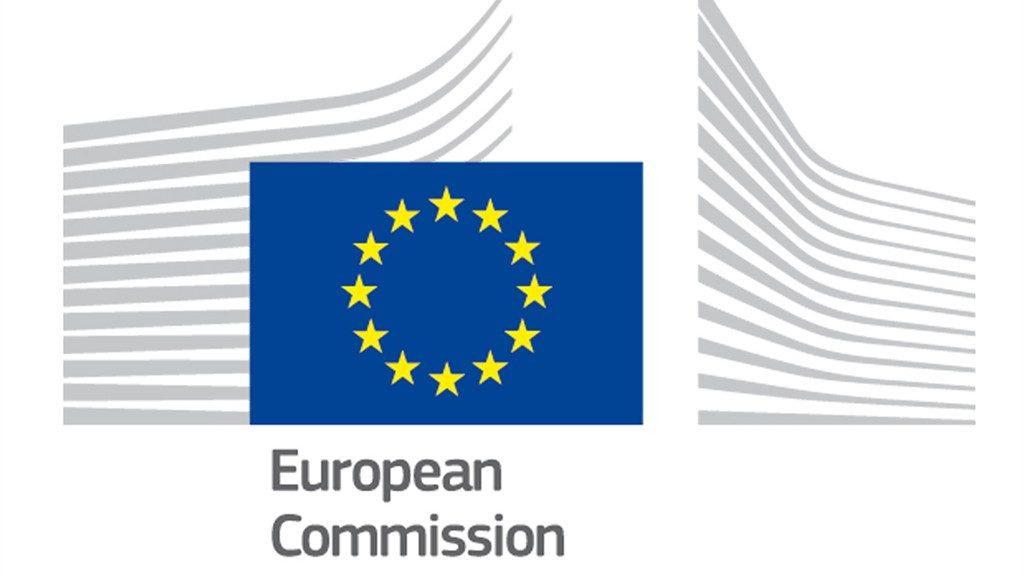
“On 26 April, 2004, the Council of the European Union stated its determination to ‘put an end to the isolation of the Turkish Cypriot community and to facilitate the reunification of Cyprus by encouraging the economic development of the Turkish Cypriot community’.
“Against this background, the Commission implements an aid programme for the Turkish Cypriot community based on the Aid Regulation (Regulation (EC) No 389/2006).
“The programme is managed by the Commission’s Structural Reform Support Service.”
EU has allocated nearly €520 million “in support of the Turkish Cypriot community” during 2006-2018
Ms Aksoy said the aid programme has a particular emphasis on the economic integration of the island; improving contacts between the two communities and with the EU; and the preparation for the EU body of laws (also referred to as the EU acquis) following a comprehensive settlement of the Cyprus issue.
The EU has allocated nearly 520 million euros for projects “in support of the Turkish Cypriot community” in the period 2006-2018, she said.
Project highlights include the laying of 263km of water supply networks and 99km of sewerage pipes; and over 600 grants for farmers, local communities, schools, small- and medium-sized businesses, and civil society organisations, Ms Akansoy pointed out.
Cash has also been used to support 75 cultural heritage sites, and the Committee on Missing Persons in Cyprus, she said.
The EU has funded over 1,400 scholarships to EU member states for Turkish Cypriot students, teachers and young professionals.
Ms Akansoy added: “The Commission directly manages some of the funding and for the rest cooperates with the third parties implementing EU funds under indirect management i.e. UN, British Council, EBRD.
“The Aid Programme is temporary; however, it does not have an end date.”


